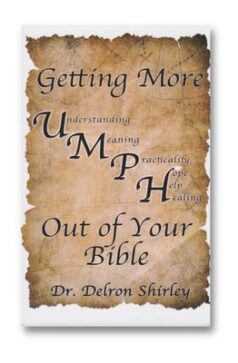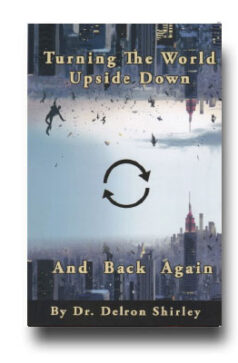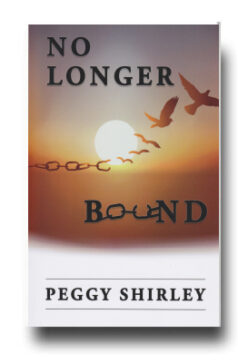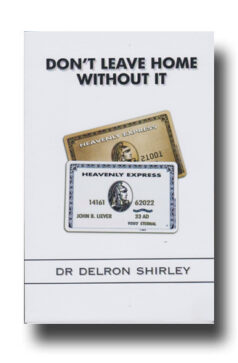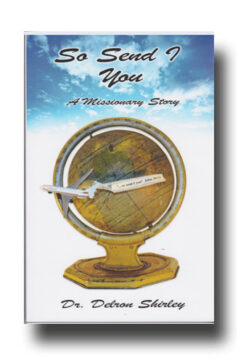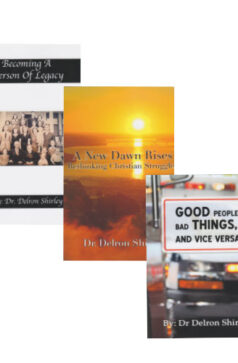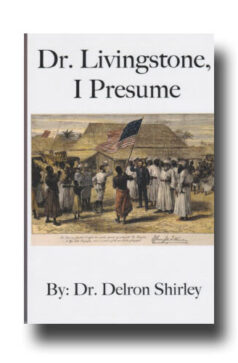We often say that there are only two things certain in life: death and taxes. We are reminded of taxes not only on April 15, but on every payday and every time we make a purchase. However, human mortality is one of those inevitable truths we wish to sweep under the carpet and ignore as long as possible. It is generally only at funerals that we allow ourselves to come face-to-face with some of the issues concerning the impermanence of life and the certainty of death.
Concerning death, there are several truths we must know. The first is that it is certain. Hebrews 9:27 demands that we realize that death is an appointment. It is one appointment that we must all keep. We may cancel a doctor’s appointment, skip the dentist’s appointment, or even miss the due date on our credit card payment; but we cannot tamper with this one God-given appointment. Some who suffer from lingering sicknesses may have advanced notice; for others, the appointment catches us by total surprise in the form of an accident or a sudden attack which we don’t have penciled on our calendars or marked in our daily planners. Whether we have an idea of the timing or if the Grim Reaper catches us totally unaware, we must never be off guard, for none of us is guaranteed the next breath. In fact, James 4:14 likens our lives to vapor that can evaporate before our very eyes without a moment’s notice. Therefore, the only wise way to conduct our lives is to live as if each breath may be our last. I’m not suggesting a morbid, foreboding, creepy fear of dying. Rather, I’m suggesting an exuberant celebration of life in which we live each second to its fullest potential as if there may not be another one to replace any one we may waste. I’m advocating a life that is lived with no regrets for things committed or things omitted.
The next truth we must realize about dying is that it is the great equalizer of all men. In I Kings 2:2, King David summed up his life with these simple words, “I go the way of all the earth.” David had fought lions, bears, giants, and mighty armies. He had served his nation as their king and brought it to dominance in the entire middle-eastern political area. He had amassed a staggering personal fortune and forged his country into a world financial leader. Yet, as he neared the end of his life, he realized that he was no different from any other man on earth. He was going the same way that all men go. There was no special plan for the politically powerful, the decorated military hero, or the financial tycoon. Every man, no matter what status he may have held in life, has the same status in death.
Death is the ultimate reducer of our accomplishments, achievements, and possessions. Job, known as the richest man in the East, certainly must have enjoyed great status in life; however, he too realized that he would some day be reduced to the bare essentials at death. He lamented, “Naked came I out of my mother’s womb, and naked shall I return thither.”
I’ve had a rather interesting life in that I’ve been privileged to move in many varied circles of society — from the rich and famous to the street beggars of Calcutta. I’ve been with them in their lives, and I been with them in their deaths. Though their lives were radically different, they were all brought to one common denominator in death. I remember helping to clean out the nursing home room of a once-wealthy lady. As we drove to the Goodwill donation bin to drop off the one suitcase of clothes and the nightstand which had stood beside her bed in the nursing facility, I thought of the extensive wardrobe she once enjoyed and the gorgeous furnishings which had once filled her home in the Midwest, her beachfront condo in Florida, and her vacation house on the lake. No matter how much she had owned and enjoyed in life, she was reduced to just one armload of possessions in her last days — and finally nothing in her death. Like Job, she went out naked — with nothing.
Though there is a commonality which all men face in dying, there still remains a great distinction in our deaths. Jesus told us a story that emphasizes the two radically different sides to death. The beggar Lazarus sat at the gate of an unnamed rich man. Though the affluent gentleman in the story lived in abundance, luxury, and opulence, he never seemed to find anything to share with the destitute homeless man who camped at his doorstep. Eventually both these men died. Though the tycoon’s body was attended to by the best mortician in the business, the man himself escaped this sphere of existence with nothing on his back or in his hand. Lazarus, whose remains were likely hauled away by the municipal workers who came to collect the refuse in the streets and alleyways, also left this life empty-handed. But as soon as they closed their eyes in death, these two men instantly realized that there was an unfathomable distinction in their deaths — one which was even more marked than the contrasts during their lives. Lazarus’ soul was escorted by an angelic entourage to a place of paradise and comforted in the very bosom of the patriarch Abraham. The well-to-do civic leader found himself tossed into the tormenting flames of hell where he begged in vain for even a drop of water.
The difference between what Lazarus and the rich man experienced after their lives here on earth was determined solely by what they had done before their deaths. Lazarus had apparently lived his life according to a principle defined by Jesus, “Don’t lay up your treasures where moths and rust corrupt them and where thieves break in and steal them; instead, lay up your treasures in heaven where moths and rust cannot corrupt them and where thieves cannot break in to steal them.” (Matthew 6:20) Apparently, the rich man had violated this necessary principle in life and found that it sealed his destiny in death. In the categorical word of Jesus, Lazarus enjoyed the “resurrection of life” while the rich man was condemned to the “resurrection of damnation.” (John 5:29)
The positive and negative sides of every aspect of our human existence — including death — are graphically displayed in a humorous little antidote about a subsistence farmer in a little Chinese village. When he told his friend about his father’s recent death, the friend offered condolences, “Oh, that’s too bad.” The farmer’s immediate response was, “But, he left me his horse which I really need here on the farm.” The friend replied, “Oh, that’s good,” but the farmer continued, “When I sent my teenage son to get the horse, the animal bucked and threw my boy causing him to break a leg.” The friend answered with, “Oh, that’s too bad,” but the farmer countered with, “No, that’s good because the Maoist rebels came that very night to force all the local young men into their forces, but they didn’t take my son because of his broken leg.”
In the pages of the New Testament, we gain a lucid insight into the positive and negative aspects of death. As he languished in a Roman jail, unsure as to what each day held — perhaps the executioner’s sword or possibly a pardon document releasing him from his incarceration — the Apostle Paul expressed his evaluation of the good and bad sides of his own personal dilemma of life versus death.
For to me to live is Christ, and to die is gain. But if I live in the flesh, this is the fruit of my labour: yet what I shall choose I wot not. For I am in a strait betwixt two, having a desire to depart, and to be with Christ; which is far better: Nevertheless to abide in the flesh is more needful for you. And having this confidence, I know that I shall abide and continue with you all for your furtherance and joy of faith; That your rejoicing may be more abundant in Jesus Christ for me by my coming to you again. (Philippians 1:22-26)
For this great hero who had lived life to its very fullest, death was nothing to be dreaded; in fact, it would be a welcomed reward for his determined and strenuous life. To him, death held only the promise of heaven — the greatest gain he could ever personally hope for. On the other hand, he realized that death, by its very definition, means separation. At his death, this great warrior of the faith would be separated from all the saints for whom he had battled so intently. In his eyes, death was not the end of his life as much as it was the end of his ministry. He didn’t fear or dread death for what it would do to him; instead, he recoiled from it only because of what it would do to those for whom he had given his life. His only regret in death was that he would leave behind those who still needed his ministry and mentoring. At this particular milepost in his life, Paul concluded that God was not finished with him; therefore, he felt confident that he would be released and restored to his beloved followers.
Paul’s testimony was not too unlike the little boy who was in the church service when the pastor asked, “Who wants to go to heaven?” When the lad’s father noticed that the little boy was the only one who didn’t raise his hand, he leaned over to his son and inquired if he didn’t want to go to heaven. The boy’s answer was that he certainly did desire to go to heaven, but he thought that the pastor was getting up a load to go right then.
At a later juncture in his life, the apostle evaluated his life and concluded that he had completed his assignments and was no longer torn between two worlds.
For I am now ready to be offered, and the time of my departure is at hand. I have fought a good fight, I have finished my course, I have kept the faith: Henceforth there is laid up for me a crown of righteousness, which the Lord, the righteous judge, shall give me at that day: and not to me only, but unto all them also that love his appearing. (II Timothy 4: 6-8)
When I read that passage, I am reminded of a dream that Dr. Lester Sumrall had just a couple years prior to his death. In that dream, he saw himself swimming down a channel whose banks were lined with beautiful palaces. He remembered having a longing desire to climb out of the water and go inside one of the mansions; however, a voice reprimanded him that he could not exit the stream until all the chores on his list were done. At that, he realized that his dream had to do with his desire to go on to heaven to be with his departed wife — a desire which would be granted soon enough, but not until after all his divine assignments were concluded. As I worked with him during those concluding days of his life, it became more and more evident that he was increasingly aware that fewer and fewer items remained to be completed. Eventually, he was able to proclaim, “Finished!” and he went on to his reward.
Until we have completed our appointed ministries, we must view death — as Paul described it in I Corinthians 15:26 — as an enemy, attempting to rob us of our opportunity to serve the Lord and His people. For those who have fulfilled their assignments, death is no longer an enemy since it is the means by which they are ushered into the presence of the Lord. If death remains an enemy, it is only so to those who are left behind with empty rooms, lonesome beds, and fond memories. Those who are left must wrestle with the reality of the very nature of death — separation. For them, every photograph can be a stark reminder of the one who has been snatched away. Every dinner table can menace them with the chair left vacant. For them, each holiday can lack the full measure of cheer it once possessed. For them, each sunset can echo the close of the life once shared with the lost friend or loved one.
With its questions, reminders, and cruel boasts — the separation of death is an enemy which must be battled. In our own private battles with the Grim Reaper, we can win the individual conflicts by trusting upon the promises of God — remembering that He has determined a time when He will personally eliminate that separation. First Thessalonians 4:16-18 speaks so eloquently of that day, promising — actually even commanding — that we find comfort in the words:
For the Lord himself shall descend from heaven with a shout, with the voice of the archangel, and with the trump of God: and the dead in Christ shall rise first: Then we which are alive and remain shall be caught up together with them in the clouds, to meet the Lord in the air: and so shall we ever be with the Lord. Wherefore comfort one another with these words.
The apostle promises that there is a day coming when all separation will be eradicated. The living are promised a day when they will join those who have been taken away by death — never to experience separation again. Additionally, we will be brought into the eternal presence of Jesus Christ Himself. In the same breath that Paul labels death as an enemy, he defines it as the last enemy to be vanquished and promises that it will be put down! (I Corinthians 15:26) When all God’s family is finally reunited with one another and with Him, there will be no more separation — and, therefore, no more death. Herein lies the necessary spiritual ammunition to contend with the enemy, death.
Until that glorious day when the separation of death is done away, we must learn to see death from the viewpoint of those who have fallen victim — or should we actually say beneficiary? — to it. To the believer who falls into its clutches, death is an instant transition into the presence of the Lord Himself (II Corinthians 5:8) and an entrance into blessed rest and peace.
And I heard a voice from heaven saying unto me, Write, Blessed are the dead which die in the Lord from henceforth: Yea, saith the Spirit, that they may rest from their labours; and their works do follow them. (Revelation 14:13)
According to I Corinthians 15:54-57, death can hold no malevolent power over those who have dealt with their earthly sins.
Death is swallowed up in victory. O death, where is thy sting? O grave, where is thy victory? The sting of death is sin; and the strength of sin is the law. But thanks be to God, which giveth us the victory through our Lord Jesus Christ.
When death tries to sting them with accusations of wrongdoings, the Lord Jesus Himself comes to their defense by reminding the principality of death that each of these transgressions has been eradicated through His shed blood and that the believer is justified (just as if I’d never sinned). Held back by the very hand of God, the stinging barbs of death are refused entry into the saint in his transition from this world to the next. When the grave tries to exert itself over the godly departed ones, it also fails to score a victory. Its only power is the ordinances of the law, but these have all been eradicated by the power of the cross of Christ. (Colossians 2:14) Imagine the scene as it must be played out — the grave trying to lay some claim upon the soul or spirit of the departed saint by reciting the Ten Commandments and any other law or ordinance it feels may incriminate him. Envision the devastating blows each time the grave enumerates any possible violation and is forced to recoil by the booming voice of God Himself insisting that each accusation is invalid because of Calvary!
Not only must we see death and dying from the perspective of the departing saint, we must also recognize that God Himself has a viewpoint that must be considered. The divine perspective on the passing of a believer is that it is a precious and welcomed homecoming. To Him, it is the final return on the investment He has been so carefully monitoring over so many years. It is not only payday for the believer; it is also God’s payday when He collects the dividend of all that He has invested in that saint — from the cross to the day of transition. The psalmist recorded the heart of God succinctly in Psalm 116:15, “Precious in the sight of the LORD is the death of his saints.”
Of course, the whole essence of the battle between life and death comes into final focus for us when we remember Easter morning. Let’s look at just one aspect of what happened that first resurrection morn.
And when the sabbath was past, Mary Magdalene, and Mary the mother of James, and Salome, had bought sweet spices, that they might come and anoint him. And very early in the morning the first day of the week, they came unto the sepulchre at the rising of the sun. And they said among themselves, Who shall roll us away the stone from the door of the sepulchre? (Mark 16:1-3)
And they found the stone rolled away from the sepulchre. And they entered in, and found not the body of the Lord Jesus. And it came to pass, as they were much perplexed thereabout, behold, two men stood by them in shining garments: And as they were afraid, and bowed down their faces to the earth, they said unto them, Why seek ye the living among the dead? (Luke 24:2-5)
The question of Easter morning is “Who will move the stone?” But this is also the everyday question of our lives:
Who will move the stone of debt?
Who will move the stone of stress?
Who will move the stone of sadness?
Who will move the stone of sickness?
Who will move the stone of depression?
Who will move the stone of trouble at work?
Who will move the stone of family problems?
The wonderful discovery that the women made on Easter morning was that the stone was already moved away when they got there. When we bring the power of the resurrected Christ into our lives, we find that every obstacle we face becomes a part of our victory. Matthew 28:2 tells us that when the angel rolled away the stone, he sat down on it. The roadblock had become a steppingstone to the victory proclamation. The barrier had become a building block for the triumphant celebration.
The stone was not only big and difficult to move, it was also a sign of resistant authority. Matthew 27:66 tells us that the Roman officials had placed a seal on the stone to secure it under Roman authority to prove that it was tamperproof. But the stamping of a governmental seal and the positioning of a quadrant of Roman soldiers guarding the stone were no match for the Lord when He decided to answer the question in the hearts of the women, “Who will move the stone?”
Every funeral is a testimony that there are stones that block our paths and seem to be barriers to our futures. The coffin reminds us of the sickness, failing health, tragic accident, or physical deterioration that recently stood as a boulder in the path of the departed loved one. At the same time, we realize that today, this friend has a new body which has not one trace of disease, not one abnormality, not one injury, and not one frailty. The lyrics of a contemporary Christian song written from the viewpoint of a believer who has gone on to his reward proclaim, “If you could see me now…” Certainly if we could see into the spirit realm, we would be looking at the stone which has been rolled away so that the real person can go free. As Paul says it, mortality has put on immortality and corruptible has put on incorruption. (I Corinthians 15:42-44)
We need to stop and recognize the stones in our lives and allow the resurrection power of Jesus to blast them out of our way. One of the great stones which we all face at the time of a loved one’s death is the feeling of loss and the sad emptiness which accompanies us as we usher a loved one to the grave. But we must strain our spiritual ears to hear that loved one calling to us from the other side, “If you could only see me now…” If only we could see him in his new body sitting at the feet of God Himself who — as the book of Revelation promises — has wiped all the tears away from his eyes and declared that he will never again experience death, sorrow, crying, or pain. (Revelation 21:4) If we could see him now, we’d see that his stone has been rolled away — and that revelation would cause our stones to roll away as well.
Many of us have fear hanging around our necks like a great stone holding us back from our futures. For many, it is fear of the coffin. We all know that somewhere along the line there is one just our size waiting to be filled; for some, that thought has crippling effects. No matter how bravely we may face our last few days on this planet or how much apprehension we feel in crossing over — once there, we will be able to shout with the Apostle Paul as translated in the Message Bible.
Death swallowed by triumphant Life! Who got the last word, oh, Death? Oh, Death, who’s afraid of you now? (I Corinthians 15:56)
The greatest stone that blocks our path into heaven is sin. We may call it by any other name: “weakness,” “humanity,” “moral failures,” “just not being perfect,” or any other excuse we can make up. But once we recognize it for what it is, the stone of sin can readily and easily be rolled out of our lives. In the verse following the one I just recited, Paul goes on to say that the sting of death is sin. The Message Bible makes it even more direct, “It was sin that made death so frightening…” Yet sin can be so easily conquered; I John 1:9 says, “If we confess our sins, He is faithful and just to forgive us our sins and to cleanse us from all unrighteous.” Accepting Jesus’ forgiveness and experiencing His pardon and acceptance are as simple as confessing our failures, frailties, mistakes — our sins — and asking Jesus to forgive us and cleanse us. If we do this sincerely from our hearts — and repeat as necessary — it will be the key to courageously facing the Death Angel. This will be the victory that moves the stone out of our way.
Death is no respecter of persons. It doesn’t care about age. It doesn’t care about whether we are ready to go or not. It doesn’t care about our schedules. It doesn’t care about holidays. Death is an enemy which we must all face someday. It doesn’t care if we are prepared or unprepared; like the “it” in the old child’s game of Hide and Seek, it calls out, “Ready or not here I come!”
Our only comfort will be in the fact that the One who has conquered death is with us as we meet our destiny. The twenty-third Psalm instructs us that only those who have the rod and the staff of the Good Shepherd — well, actually the Good Shepherd Himself — can walk through the valley of the shadow of death without fear of evil. Regardless of the tranquil picture it presents, this psalm — one of the most comforting scriptures as we face the reality of death — was not written when David was quietly tending his flocks on a green mountain meadow. Instead, it was penned while David was under constant threat of death by his pursuing enemy.
Like David who could write of the peaceful guardianship of God even while death was breathing down his neck, Christians need not fear the process of dying, the experience of death, the judgment that follows death, or hell which finalizes death in what the Bible calls the “second death.” Death to a Christian is not the end; it is actually a new beginning. In speaking of His own death, Jesus described it as a change of address. He said that He was going away and that He was to return to bring us to be with Him at this new address. (John 14:1) If we view death this way, there is no more to fear or dread about it than the simple act of moving from one home to another. As we have already learned, the Apostle Paul saw himself in a strait between two — to stay or to go. He felt that to die would be for his personal gain, but to stay would be beneficial to the believers he was ministering to. As soon as he was certain that he had done all that he needed to do here on earth, he was ready to move on to his new home.
In death, we experience simply a transition from one form of living to another. We can’t deny that the process of dying can be cruel, but the death event itself is described in the Bible as a great homecoming with an angelic escort into the presence of God.
When we close the lid on the casket and bid our final good-byes to our loved ones and lower their bodies into the warm soil of the earth, we must remember what the Apostle Paul told us about burial: it is only planting a seed. (I Corinthians 15:42-43) Every spring, farmers and housewives plant their precious seed in the fertile soil. In the same way, we plant the precious seed of our loved one. The Apostle Paul taught us to look at burial with the promise that whatever seed we plant will spring forth in an immortal form. Just as the housewife’s humble seed will soon sprout forth as a beautiful flower and the farmer’s seed will soon become delicious fruit, the seed we plant will someday be raised in victory.
Jesus Christ gave His life and conquered death on the third day so that we can also know the victory over death and its sting. But not everyone has this victory — although each and every one of us can. Jesus said that to believe on Him guarantees us eternal life, but refusing or neglecting to believe Him would result in eternal damnation and eternal punishment and separation from God. (Mark 16:16)
We may try to change our destiny by making a decision to act according to the basic principles of kindness, generosity, and selflessness; but I can guarantee that we’ll all be back to our same lifestyles within a week. However, there is a change which can take place inside us which will transform us from the inside out so that we become people who not only live by these principles, but people whose lives literally consist of them. Jesus shocked the religious leader Nicodemus when He told him that a man can have a second beginning to his life — a literal second birth at which he invites God to radically transform him into a new creation who draws his very life from God. It is through this new birth that we finally win the war between life and death. That new beginning is available to each of us today and it is as close as the breath it takes to utter a simple prayer, acknowledging that we believe in Jesus and receive His salvation.
There was a man of the Pharisees, named Nicodemus, a ruler of the Jews: The same came to Jesus by night, and said unto him, Rabbi, we know that thou art a teacher come from God: for no man can do these miracles that thou doest, except God be with him. Jesus answered and said unto him, Verily, verily, I say unto thee, Except a man be born again, he cannot see the kingdom of God. Nicodemus saith unto him, How can a man be born when he is old? can he enter the second time into his mother’s womb, and be born? Jesus answered, Verily, verily, I say unto thee, Except a man be born of water and of the Spirit, he cannot enter into the kingdom of God. That which is born of the flesh is flesh; and that which is born of the Spirit is spirit. Marvel not that I said unto thee, Ye must be born again. The wind bloweth where it listeth, and thou hearest the sound thereof, but canst not tell whence it cometh, and whither it goeth: so is every one that is born of the Spirit. Nicodemus answered and said unto him, How can these things be? Jesus answered and said unto him, Art thou a master of Israel, and knowest not these things? Verily, verily, I say unto thee, We speak that we do know, and testify that we have seen; and ye receive not our witness. If I have told you earthly things, and ye believe not, how shall ye believe, if I tell you of heavenly things? And no man hath ascended up to heaven, but he that came down from heaven, even the Son of man which is in heaven. And as Moses lifted up the serpent in the wilderness, even so must the Son of man be lifted up: That whosoever believeth in him should not perish, but have eternal life. For God so loved the world, that he gave his only begotten Son, that whosoever believeth in him should not perish, but have everlasting life. For God sent not his Son into the world to condemn the world; but that the world through him might be saved. He that believeth on him is not condemned: but he that believeth not is condemned already, because he hath not believed in the name of the only begotten Son of God. And this is the condemnation, that light is come into the world, and men loved darkness rather than light, because their deeds were evil. For every one that doeth evil hateth the light, neither cometh to the light, lest his deeds should be reproved. But he that doeth truth cometh to the light, that his deeds may be made manifest, that they are wrought in God. (John 3:1-21)



